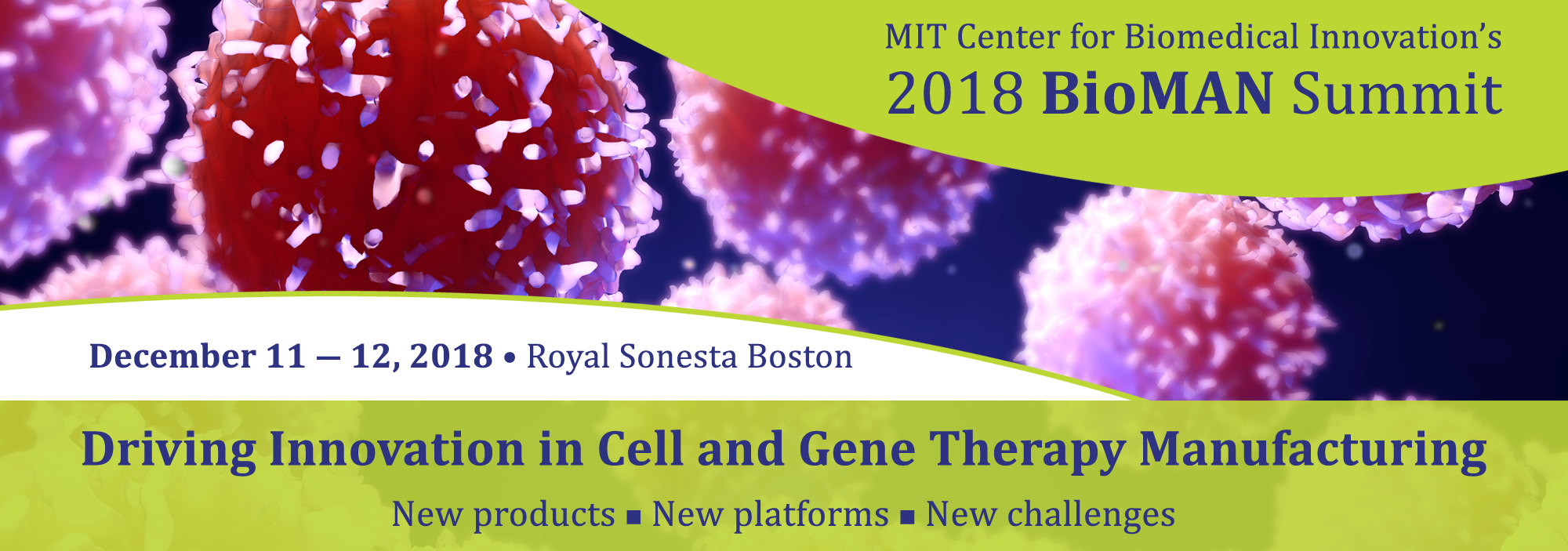
|
 |

|
Daniel G. Anderson view abstract | back to agenda
Associate Professor, Chemical Engineering, Institute for Medical Engineering and Science, Division of Health Science and Technology, and the David H. Koch Institute for Integrative Cancer Research, MIT
Professor Daniel G. Anderson is a leading researcher in the field of nanotherapeutics and biomaterials. He is appointed in the Department of Chemical Engineering, the Institute for Medical Engineering and Science, the Koch Institute for Integrative Cancer Research, and the Harvard-MIT Division of Health Science and Technology at MIT. The research done in Prof. Anderson’s laboratory is focused on developing new materials for medicine. He has pioneered the development of smart biomaterials, and his work has led to advances in a range of areas, including medical devices, cell therapy, drug delivery, gene therapy and material science. Prof. Anderson received a BA in mathematics and biology from the University of California at Santa Cruz and a PhD in molecular genetics from the University of California at Davis. His work has resulted in the publication of over 400 papers, patents and patent applications. These advances have led products that have been commercialized or are in clinical development, as well as to the foundation of companies in the pharmaceutical, biotechnology, and consumer products space including CRISPR Tx (Nasdaq:CRSP), Living Proof, Sigilon, Verseau Tx, and Olivo Labs. |
 |
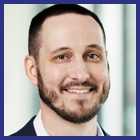
|
Paul W. Barone view abstract | back to agenda Day 1 | back to agenda Day 2
Director, Biomanufacturing Program and the Consortium on Adventitious Agent Contamination in Biomanufacturing, MIT CBI
Dr. Barone has been at the MIT Center for Biomedical Innovation since 2010. He currently is the Director of two biopharmaceutical industry consortia housed at MIT: the Biomanufacturing Program (BioMAN) and the Consortium on Adventitious Agent Contamination in Biomanufacturing (CAACB). He manages sponsored projects and activities for both BioMAN and CAACB with topics ranging from analysis of media treatment options to risk assessment and risk control for adventitious agent contamination. In addition to directing the Biomanufacturing initiatives, he helps to manage several sponsored research projects related to biomanufacturing. |
 |
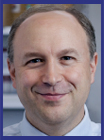
|
Lawrence Bonassar view abstract | back to agenda
Daljit S. and Elaine Sarkaria Professor, Meinig School of Biomedical Engineering, Sibley School of Mechanical and Aerospace Engineering, Cornell University
Dr. Bonassar received his bachelorÕs degree from the Departments of Biomedical Engineering and Materials Science and Engineering from the Johns Hopkins University. He received both his masters and doctoral degrees from the Department of Materials Science and Engineering at MIT. He completed postdoctoral training in the Department of Orthopaedic Surgery at Massachusetts General Hospital and Harvard Medical School. He was an Assistant Professor in the Center for Tissue Engineering at University of Massachusetts Medical School from 1997 to 2003. In 2003 he joined the faculty of Cornell University and was one of the founding members of the Department of Biomedical Engineering, serving as Associate Chair of the department from 2005-2014. He is currently the Daljit S. and Elaine Sarkaria Professor in the Meinig School of Biomedical Engineering and the Sibley School of Mechanical and Aerospace Engineering.
Dr. Bonassar’s research focuses on cartilage biomechanics and tissue engineering. His work is aimed at understanding structure-property relationships in cartilage to elucidate mechanisms of disease and inform design of tissue replacements. His research focusing on tissue regeneration includes the development of tissue injection molding and 3D tissue printing aimed at scale-up and manufacturing of high-fidelity living implants design based on medical imaging. He has published more than 200 peer-reviewed articles that have been collectively cited more than 12,000 times. His work on tissue engineering and regenerative medicine has been featured in the Health and Science Section of the Washington Post, National Geographic’s Explorers, BBC’s Horizons, CBC’s The Nature of Things, CBS’s Sunday Morning, and CNN’s Fareed Zakaria GPS. |
 |
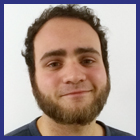
|
Nicholas Brancazio view abstract | back to agenda
Microbiology Associate, Fluid-Screen
As a Microbiologist at Fluid-Screen, Nicholas Brancazio studies bacterial response to electric fields, develops techniques for microbial capture and release, and optimizes analysis of bacterial motion. Previous areas of research include microbial genetics, electro-conductive bacteria, and biofuel production. Nicholas is dedicated to using the Fluid-Screen technology to revolutionize sterility testing in biomanufacturing. . |
 |
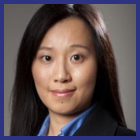
|
Vivian Choi view abstract | back to agenda
Director, Head of Gene Therapy Research US, Discovery Therapeutics, US Drug Discovery, Shire
Vivian has spent >18 years in gene therapy research at both academic and industrial drug development settings. Vivian joined Shire in 2015 as the Head of Gene Therapy Research US. Vivian’s main roles include driving the Shire Gene Therapy Research Strategy, leading and advising discovery gene therapy programs, and establishing internal vectorology capabilities. She was previously an investigator and global project team lead at Novartis Institutes for BioMedical Research where she led multiple ophthalmic gene therapy projects, as well as establishing the platform for developing rAAV vector as a modality. She received her BS in Biochemistry from University of Wisconsin at Madison, PhD in Pharmacology from University of North Carolina at Chapel Hill and postdoctoral training in Genetics and Immunology at Harvard Medical School. |
 |

|
Warren Davis view abstract | back to agenda
Sales Account Manager, Berkeley Lights
Prior to joining Berkeley Lights in the spring of 2018, Mr. Davis’ efforts were focused on designing and implementing system and application solutions for cellular image-based research and screening. This work has spanned a range of technologies for tissue, cellular, and 3D culture analysis, with recent efforts centered on integrated high-content analysis systems incorporating advanced imaging and automation capabilities. |
 |

|
Guangping Gao view abstract | back to agenda
Co-Director, Li Weibo Institute for Rare Diseases Research, Director, Horae Gene Therapy Center and Viral Vector Core, Professor of Microbiology and Physiological Systems, Penelope Booth Rockwell Professor in Biomedical Research, University of Massachusetts Medical School
Dr. Gao is an internationally recognized gene therapy researcher who has played a key role in the discovery and characterization of a new family of adeno-associated virus (AAV) serotypes, which was instrumental in reviving the gene therapy field, hugely impacting many currently untreatable human diseases. Dr. Gao has published 240+ research papers. He is President-elect for the American Society of Gene and Cell Therapy, a fellow of the US National Academy of Inventors (NAI), holding 131 patents with 221 more patent applications pending; some have been licensed to 10+ pharmaceutical companies. He cofounded Voyager Therapeutics and ASPA Therapeutics, focusing on developing rAAV gene therapeutics for treating a variety of devastating CNS disorders. |
 |
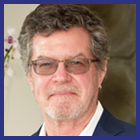
|
Martin Giedlin view abstract | back to agenda
Vice President, Technical Operations, Poseida Therapeutics
Dr. Giedlin currently leads the Process Development/ manufacturing team in the Cell and Gene therapy program at Poseida Therapeutics. His responsibilities include continuous refinement of the current P-BCMA-101 manufacturing process as well as leading the selection/tech transfer/clinical manufacturing programs in support of the company’s clinical trial programs. Previous to his arrival at Poseida in Feb 2018, he led the Large Scale Process Development group in the Cell and Gene Therapy program at Novartis. During this time his team developed the process for clinical and commercial manufacturing of the gene-modified autologous CAR-T adoptive cell therapy for the treatment of pediatric ALL and DLBCL, Kymriah™. His past roles included the Vice President of Pharmacology and Manufacturing at Sangamo Biosciences supporting the many programs in hemophilia (rAAV manufacturing, assay development, Pharm/tox), hemoglobinopathies (gene-modified CD34 cells), and HIV (CCR5 knockouts of autologous CD4+ T cells). He has also served as Director of Pharm/tox at Cerus (Listeria-based cancer vaccines) and Onyx (oncolytic virus), as well as Chiron (Proleukin®, Betaseron®, anti-CD40 antibodies, vaccine adjuvants). He received his PhD in Microbiology/Immunology from the Medical College of Virginia,Virginia Commonwealth University and his BS in Biology/Chemistry from the University of Notre Dame. |
 |

|
Colin Hebert view abstract | back to agenda
Vice President, Biotechnology, LumaCyte
Dr. Hebert earned his PhD in Bioengineering from the Fischell Department of Bioengineering at the University of Maryland and was part of the team that developed the underlying technology used in LumaCyte’s Radiance™ instrument while at the Naval Research Laboratory. In addition to his contributions to the label-free cell analysis platform developed by LumaCyte, he has authored numerous publications and patents over a diverse range of areas including metabolic engineering using the baculovirus expression system and cell signal engineering. In his role at LumaCyte, Dr. Hebert oversees technical operations including instrument R&D, LumaCyte’s BSL-2 cell culture facilities, designing internal and external biological experiments and managing the design and development of LumaCyte’s analytical platforms. |
 |

|
Onur Kas view abstract | back to agenda
Senior Scientist, Virus and Gene Therapy Bioprocessing, MilliporeSigma
Onur Kas is a Senior Scientist in the Virus and Gene Therapy Bioprocessing Group at MilliporeSigma, responsible for downstream processing. Onur has a PhD and a postdoc in Materials Science and Engineering. During his 10+ years in MilliporeSigma’s Life Science business, Onur has led multiple technology and product development projects. He is an inventor of 9 patents and an expert in filtration. |
 |
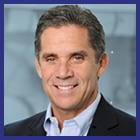
|
Stephen Kennedy view abstract | back to agenda
Executive Vice President and Chief Operating Officer, Histogenics
Stephen Kennedy is the Chief Operating Officer and Executive Vice President of Histogenics. Mr. Kennedy joined Histogenics in 2013 with responsibilities over manufacturing, technology development and quality operations related to clinical development of its flagship product NeoCart, which is a tissue-engineered autologous cartilage product. Histogenics is focusing on developing commercial manufacturing infrastructure in the US and Japan in anticipation of successful filing and approval of its NeoCart Biologics License Application. Most recently Mr. Kennedy has been focused on leveraging Histogenics’ translational capabilities into other tissue engineering product applications. Prior to joining Histogenics, Mr. Kennedy had more than 25 years of experience in biologics manufacturing and process development. Mr. Kennedy has a BS from the University of Michigan, an MS from the University of Rochester and an MBA from Boston University. |
 |

|
Lisa M. Larkin view abstract | back to agenda
Chief Executive Officer & Founder, STEL Technologies; Professor, Molecular & Integrative Physiology and Biomedical Engineering, University of Michigan
Lisa M. Larkin, PhD, is an Associate Professor of Molecular & Integrative Physiology at the University of Michigan. She holds a joint appointment in the Biomedical Engineering Department at the University of Michigan. Dr. Larkin is co-director of the Skeletal Tissue Engineering Laboratory at the University of Michigan and has 28 years of expertise on musculoskeletal physiology and small and large animal surgical procedures and more than 15 years experience specifically with ligament, tendon, muscle and bone tissue engineering. Larkin has pioneered methods to co-culture scaffold-free tissue constructs to engineer functional tissues and their interfaces. She is co-founder and Chief Executive Officer of STEL Technologies, a start-up based in Ann Arbor (MI) that is currently focused on commercialization of bone-ligament-bone grafts for anterior cruciate ligament reconstruction. Dr. Larkin has four patents and two non-provisional patents for her work. She has co-authored 26 peer-reviewed journal papers, 4 reviews and two book chapters specifically on tissue engineering, another 34 on the physiology of muscle. Dr. Larkin is a member of the following societies: The American Physiological Society, Society for Neuroscience, Tissue Engineering Society International, Biomedical Engineering Society, and Orthopaedic Research Society. |
 |
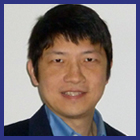
|
Harry Lee view abstract | back to agenda
Co-Founder and President, Pharyx
Harry Lee is Co-Founder and President of Pharyx and has pioneered the development of microbioreactor systems for upstream process development, research, and personalized cell therapy manufacturing. He received his MS and PhD in electrical engineering from the Massachusetts Institute of Technology, where he developed the core technologies enabling high-performance microbioreactors and developed one of the first systems to use Raman spectroscopy for in situ bioprocess analysis. |
 |
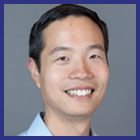
|
Philip Lee view abstract | back to agenda
Co-Founder and Chief Operating Officer, Senti Biosciences
Philip Lee is the Chief Operating Officer and co-founder of Senti Biosciences, a cell/gene therapy company advancing synthetic biology technologies. He received his PhD in Bioengineering from UC Berkeley/UC San Francisco and undergraduate degrees in Chemical Engineering and Biology from the Massachusetts Institute of Technology. Previously, he was the co-founder and CEO of CellASIC, a cell culture technology company which was acquired by Merck KGaA, and served as the Director of New Business Initiatives and Head of Cell Culture Systems at Merck KGaA. |
 |
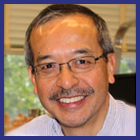
|
James C. Leung back to agenda
Senior Research Fellow, MIT CBI
James Leung, PhD is a Senior Research Fellow at the MIT Center for Biomedical Innovation (CBI). He serves as the lead investigator for the Consortium on Adventitious Agent Contamination in Biomanufacturing (CAACB) and the Biomanufacturing (BioMAN) program. He contributes to the design and implementation of biotechnology-related courses and serves as a lecturer in some of these courses at MIT. He maintains a strong connection to industrial practices by serving as a consultant/advisor to pharmaceutical and biotechnology companies and other research organizations. Before his current roles, Jim held full time positions at Genentech, Repligen and Ipsen in the areas of process development, manufacturing and product development of recombinant biotherapeutics. Jim received a BSc degree from the Chemical Engineering Department at MIT. For graduate studies, he completed a MSc degree and a PhD degree in Biochemical Engineering from MIT. |
 |

|
Bruce Levine view abstract | back to agenda
Barbara and Edward Netter Professor in Cancer Gene Therapy, Founding Director of the Clinical Cell and Vaccine Production Facility, Department of Pathology and Laboratory Medicine and the Abramson Cancer Center, Perelman School of Medicine, University of Pennsylvania
Dr. Bruce Levine, Barbara and Edward Netter Professor in Cancer Gene Therapy, is the Founding Director of the Clinical Cell and Vaccine Production Facility (CVPF) in the Department of Pathology and Laboratory Medicine and the Abramson Cancer Center, Perelman School of Medicine, University of Pennsylvania. He received a BA (Biology) from Penn and a PhD in Immunology and Infectious Diseases from Johns Hopkins. First-in-human adoptive immunotherapy trials include the first use of a lentiviral vector, the first infusions of gene-edited cells, and the first use of lentivirally-modified cells to treat cancer. Dr. Levine has overseen the production, testing and release of 3,000 cellular products administered to >1,200 patients in clinical trials since 1996. He is co-inventor of the first FDA-approved gene therapy (Kymriah™), chimeric antigen receptor T cells for leukemia and lymphoma, licensed to Novartis. Dr. Levine is co-inventor on 25 issued US patents and co-author of >160 manuscripts and book chapters with a Google Scholar citation h-index of 77. He is a Co-Founder of Tmunity Therapeutics, a spinout of the University of Pennsylvania. Dr. Levine is President-elect of the International Society for Cell and Gene Therapy and serves on the Board of Directors of the Alliance for Regenerative Medicine. He has been interviewed by the NY Times, Wall Street Journal, Washington Post, NPR, Time Magazine, National Geographic, Forbes, BBC, and other international media outlets. |
 |

|
Harshyaa Makhija view abstract | back to agenda
Research Fellow, Nanyang Technological University, Singapore-MIT Alliance for Research and Technology
Dr. Makhija is currently working as a Research Fellow (funded by Singapore-MIT Alliance for Research and Technology) in Nanyang Technological University, Singapore. She aims to develop the potential platform and explore various applications of the novel genome-engineering tool based on lambda integrase developed during her doctoral studies in 2015 in Singapore. Her area of interests includes genetics, cancer, stem cell engineering and scientific entrepreneurship. |
 |

|
Peter Marks view abstract | back to agenda
Director, Center for Biologics Evaluation and Research, U.S. Food and Drug Administration
Peter Marks received his graduate degree in cell and molecular biology and his medical degree at New York University and completed Internal Medicine residency and Hematology/Medical Oncology training at Brigham and Women’s Hospital in Boston. He has worked in academic settings teaching and caring for patients and in industry on drug development. He joined the FDA in 2012 as Deputy Center Director for CBER and became Center Director in January 2016. |
 |

|
Travis A. McCready back to agenda
President and Chief Executive Officer, Massachusetts Life Sciences Center
Travis McCready is the President and Chief Executive Officer of the Massachusetts Life Sciences Center, a $1 billion public–private partnership with the mission of advancing the life sciences ecosystem in Massachusetts. He directs and oversees the center’s investment strategy, including the agency’s operations, programs, and partnerships. Previously, Mr. McCready served as the Vice President for Programs at The Boston Foundation, directing the Foundation’s grants and community investment strategy to benefit the people of Greater Boston. He was the first Executive Director of the Kendall Square Association, responsible for growing the innovation economy of Kendall Square, one of the Commonwealth’s most economically robust districts. He has held the Chief Operating Officer and Chief Financial Officer positions at the Massachusetts Convention Center Authority, overseeing the operations and finances for three convention centers in Massachusetts. A native of Brooklyn, Mr. McCready began his career as a public school teacher in the Bronx, NY.
Mr. McCready serves on as a trustee on the Advisory Boards for Beth Israel Deaconess Medical Center, the Conservation Law Foundation, Institute of Contemporary Art/Boston, and WBUR; and the New England Advisory Council for the Federal Reserve Bank of Boston. He served on the Economic Development Planning Council under two governors, including co-chairing the subcommittee on innovation and entrepreneurship. He currently serves on the Massachusetts Digital Healthcare Council and the Advanced Manufacturing Collaborative. In 2018, he was named one of the 100 Most Influential People in Boston by Boston Magazine. Mr. McCready is a frequent speaker on economic development strategy as it relates to the convergence of private, public, and not-for-profit interests. His blog,, Life Sciences Discourses, has been recognized by The Boston Globe. Mr. McCready received his BA from Yale University and JD from the University of Iowa.
MISSION: The Massachusetts Life Sciences Center (MLSC) is an economic development and investment agency dedicated to supporting the growth and development of the life sciences in Massachusetts, home to the most verdant and productive life sciences ecosystem in the world. Through public-private funding initiatives, the MLSC supports innovation, research & development, commercialization, and manufacturing activities in the fields of biopharma, medical device, diagnostics, and digital health. Since its creation in 2007, the MLSC has strategically deployed over $700 million in Massachusetts, through a combination of grants, loans, capital infrastructure investments, tax incentives, and workforce programs. These investments have created thousands of jobs, and propelled the development of new therapies, devices, and scientific advancements that are improving patient health and well-being in Massachusetts and beyond. |
 |
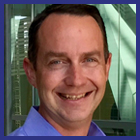
|
Trent Munro view abstract | back to agenda
Executive Director of Process Development, Attribute Sciences, Amgen
Dr. Trent Munro is an Executive Director of Process Development within Attribute Sciences at Amgen, based in Thousand Oaks, California. He joined Amgen in 2013 and currently leads analytical process development for the early stage clinical pipeline across all modalities. Dr. Munro has a PhD in Protein Biochemistry and completed postdoctoral studies in cell biology and developmental genetics at the Department of Cell Biology, Harvard Medical School and at the Wellcome Trust and Cancer Research UK Gurdon Institute, University of Cambridge. |
 |

|
Nicole K. Paulk view abstract | back to agenda
Assistant Professor, Department of Biochemistry & Biophysics, University of California, San Francisco; Visiting Scientist, Genome Engineering, Chan Zuckerberg Biohub
Nicole Paulk is an Assistant Adjunct Professor in the Department of Biochemistry and Biophysics at UCSF, and a Visiting Scientist in Genome Engineering at the Chan Zuckerberg Biohub. Dr. Paulk received her BS in Medical Microbiology in 2006, did a PhD in Applied Virology and Regenerative Hepatology with Markus Grompe at Oregon Health Science University in 2012, and a Postdoctoral Fellowship in Viral Bioengineering with Mark Kay at Stanford University in 2016, and was an Instructor at Stanford University in Human Gene Therapy until 2017 until beginning her Assistant Professorship at UCSF in 2018. Dr. Paulk’s lab is highly interdisciplinary, focused on enabling technology development for gene therapy at the crossroads of AAV platform engineering, genome editing, and humanized animal model development for preclinical gene therapy validation. Dr. Paulk is heavily involved in startup coaching and consulting to help bring new innovative gene therapy companies to the market with the fantastic entrepreneurial and VC environment in Silicon Valley. |
 |

|
Casey Quinn view abstract | back to agenda
Research Advisor, NEWDIGS FoCUS Project, MIT CBI
Casey has 15 years experience in health economics, outcomes research, and pricing and reimbursement of drug therapies, in Australia, the UK, and the US. Currently, Casey is an advisor to the MIT Centre for Biomedical Innovation/NEWDIGS Financing and Reimbursement of Cures in the US (FoCUS) program, as well as a Director of health economics and outcomes research at a UK-based consulting firm. He has previously worked on evaluations for the Australian and UK departments of health, served on a National Institute for Health and Care Excellence (NICE) technology appraisal committee, and currently serves on a US state Medicaid Drug Utilization Review Board. He has a PhD in Health Economics from the University of York. |
 |

|
Rajeev Ram view abstract | back to agenda
Professor of Electrical Engineering and Computer Science, MIT
Rajeev J. Ram is Professor of Electrical Engineering and Computer Science at MIT. His lab had developed hardware and algorithms for on-line optical monitoring and control of upstream bioprocesses. These technologies include in situ Raman, microbioreactors, and single-shot machine learning. |
 |
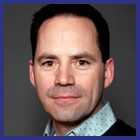
|
Rodney Rietze view abstract | back to agenda
Director, Strategic Development and Innovation, Novartis Pharmaceuticals
Dr. Rod Rietze is the Director of Strategic Development and Innovation at Novartis Pharmaceuticals, where he supports the development of novel bioprocesses, analytics and other enabling technologies for next generation cell and gene therapies, as well as the global manufacture of Kymriah™, the first FDA-approved personalized CAR-T cell therapy.
Before joining Novartis, Dr. Rietze was a Senior Director of Process Development for Ovasave™ at TxCell (France), and Senior Principal Fellow at Pfizer Regenerative Medicine (Cambridge, UK) where he led research teams in the discovery and early clinical development of small molecule and cell-based therapeutics for neural, cardiovascular and auto-immune indications. Preceding his transition to Industry, Dr. Rietze was a founding faculty member of the Queensland Brain Institute (Brisbane, Australia) and Head of the Neural Stem Cell and Aging Laboratory.
Dr. Rietze has nearly two decades of technical, operational and strategic leadership experience in the development of cell-based therapies and is passionate about delivering innovative technologies and medicines to transform the treatment of disease. He holds a BSc and MSc from the University of Calgary, and a PhD from The Walter and Eliza Hall Institute (University of Melbourne, Australia). |
 |

|
Mimi Roy view abstract | back to agenda
Executive Director, Analytical Chemistry, BioMarin
Mimi Roy is Executive Director, Analytical Chemistry at BioMarin having previously held several leadership positions in industry including the US site-head of a CRO and Head of Analytical at Sutro Biopharma. Mimi has a PhD from Princeton University in Protein Design and Characterization. Her post-doctoral work on Expansion of the Genetic Code was under Peter Schultz, Professor & President, The Scripps Research Institute. In her spare time, Mimi travels, practices yoga and sings. |
 |
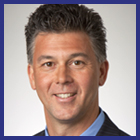
|
Gregory Russotti view abstract | back to agenda
Vice President, Cell Therapy Technical Development, Celgene
Gregory Russotti is currently Vice President of Cell Therapy Technical Development at Celgene Corporation, responsible for process development, analytical method development, product sciences and process/assay support for clinical and commercial manufacturing for cell therapy products.
Prior to joining Celgene in 2006, Greg spent 15 years at Merck Research Laboratories developing products that included live virus vaccines, monoclonal antibodies, recombinant vaccines, and microbially-produced natural products. He worked on development, scale-up, and tech transfer of cell culture, microbial fermentation, and downstream isolation processes to clinical and commercial manufacturing facilities. Greg received his BS and MS degrees in Chemical Engineering from Rensselaer Polytechnic Institute and his PhD in Chemical and Biochemical Engineering from Rutgers University. |
 |
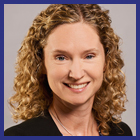
|
Aletta Schnitzler view abstract | back to agenda
Head of Collaborations, Cell Therapy Bioprocessing, MilliporeSigma
Aletta has been with MilliporeSigma for 10 years and currently manages process development and collaboration projects to advance cell therapy manufacturing. Previous roles at MilliporeSigma include Scientist in R&D and Field Marketing supporting small-scale chromatography devices, cell culture media for monoclonal antibody production, and more recently for cell therapy applications. Aletta received her PhD in 2007 from Boston University School of Medicine in the fields of immunology and neuroscience. |
 |

|
Elizabeth Schwarzbach view abstract | back to agenda
Chief Business Officer, New York Stem Cell Foundation Research Institute
Dr. Schwarzbach is Chief Business Officer, overseeing collaborations and partnerships at the New York Stem Cell Foundation Research Institute. She has extensive experience in industry and academic drug discovery and development. She began her career as a biologist in Merck Research Labs, received her PhD in Neuropharmacology from the University of Pennsylvania School of Medicine, led numerous strategic engagements as a manager with L.E.K. Consulting’s Life Sciences practice, then transitioned to GlaxoSmithKline R&D Strategy, and spent a short time as Head, Business Development for Axovant Sciences. As a non-profit leader, Liz served as Chief of Staff of Sanford Burnham Prebys Medical Discovery Institute, a private research institute headquartered in La Jolla, California. |
 |
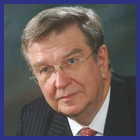
|
Anthony J. Sinskey back to agenda
Professor of Biology; Faculty Director, Center for Biomedical Innovation, MIT
Anthony J. Sinskey, ScD, is a Professor of Microbiology at the Massachusetts Institute of Technology. He also holds positions as Co-Director of the Malaysia-MIT Biotechnology Partnership Program and as Faculty Director of the MIT Center for Biomedical Innovation. He conducts interdisciplinary research in metabolic engineering focusing on the fundamental physiology, biochemistry and molecular genetics of important organisms.
Professor Sinskey is well known in the biopharmaceutical industry and has been a Scientific Co-founder of several biotechnology companies, including Genzyme, Metabolix, Merrimack Pharmaceuticals, and Tepha. Dr. Sinskey has given more than 350 presentations at US and International scientific meetings and congresses. He has received 31 issued patents, has made more than 30 invention disclosures and has published more than 350 scientific papers in leading peer-reviewed journals for biology, metabolic engineering, and biopolymer engineering.
His current research focuses on the genetics and biochemistry of carbon storage in biological systems including biopolymers and triacylglycerides. Investigations include studies with a variety of feedstocks to fuels, chemicals and biopolymers.
Dr. Sinskey received his undergraduate degree from the University of Illinois at Urbana-Champaign and his ScD in Microbiology and Food Science from the Massachusetts Institute of Technology. His post-doctoral work was done at the Harvard School of Public Health. |
 |

|
David Sourdive view abstract | back to agenda
Executive Vice President, Technical Operations, Cellectis
David Sourdive, PhD, is a co-founder of Cellectis and joined the Board of Directors in 2000. Dr. Sourdive holds the position of Executive Vice President, Technical Operations, with the mission to develop the Company’s industrial and technological basis as well as to deploy its operations in the pharmaceutical arena. Dr. Sourdive combines a strong scientific expertise with experience in managing industrial programs bringing innovative technologies to industrial fruition. He served as Executive Vice President, Corporate Development, from 2008 to 2016. In addition to his role at Cellectis, Dr. Sourdive has also served on the board of directors of the Mediterranean Institute for Life Sciences. David Sourdive graduated from École Polytechnique, received his PhD in molecular virology at Institut Pasteur and completed a research fellowship in the Emory University Department of Microbiology and Immunology. His management training is from the HEC (Challenge +) and his decade-long experience in industrial program management was acquired at the French Department of Defense (DGA) prior to Cellectis’ inception.
|
 |
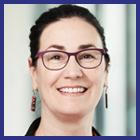
|
Stacy L. Springs back to agenda Day 1 | back to agenda Day 2
Executive Director, Biomanufacturing Initiatives; Senior Director of Programs, MIT CBI
Dr. Stacy L. Springs serves as the Senior Director of Programs at MIT’s Center for Biomedical Innovation (CBI) and as the Executive Director of MIT’s Biomanufacturing Program (BioMAN), its Consortium on Adventitious Agent Contamination in Biomanufacturing (CAACB) and the BioACCESS initiative. Her responsibilities include program strategy and execution, member recruitment and management, and management of multi-investigator, multi-institutional research and education projects. Her broad research interests are in biomanufacturing, risk management, science policy and food safety. She was a founder and inaugural Associate Director of the National Institute for Innovation in Biopharmaceutical Manufacturing and co-authored the US Chapter of the United Nations Educational, Scientific and Cultural Organization (UNESCO) 2015 Science Report. She holds a PhD in Chemistry from the University of Texas at Austin and gained postdoctoral training in protein and biophysical chemistry at Princeton University. |
 |

|
Krystyn Van Vliet view abstract | back to agenda
Associate Provost; Michael and Sonja Koerner Professor of Materials Science and Engineering and Professor of Biological Engineering, MIT
Krystyn Van Vliet, PhD serves currently as Massachusetts Institute of Technology (MIT) Associate Provost and Director of Manufacturing Innovation for the MIT Innovation Initiative. She is the Michael and Sonja Koerner Professor of Materials Science and Engineering, and holds at dual appointment in the Department of Biological Engineering. Dr. Van Vliet earned her ScB in Materials Science & Engineering from Brown University (1998) and her PhD in Materials Science & Engineering from MIT (2002). She conducted postdoctoral research at Boston Children’s Hospital in vascular biology and mechanics related to cancer, and joined the faculty of the MIT Department of Materials Science & Engineering in 2004. Dr. Van Vliet leads the MIT Laboratory for Material Chemomechanics, and also leads the Singapore-MIT Alliance in Research & Technology (SMART) BioSystems & Micromechanics team, which includes approximately 175 researchers in Singapore and MIT, including 8 other MIT faculty from several engineering departments and 25 Singapore-based faculty collaborators. This team invents and develops new technology platforms for diagnostics and treatment of cell and tissue disease. Within five years, this team of engineers, biologists, and clinicians has contributed several key breakthroughs and inventions to cell imaging, drug screening, and optical imaging; this includes one start-up company and several devices now involved in international clinical trials including stem cell-based therapies. |
 |
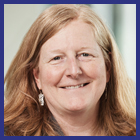
|
Jacqueline Wolfrum back to agenda
Associate Director, Biomanufacturing Program, MIT CBI
Dr. Jacqueline Wolfrum is the Associate Director of the Biomanufacturing Program (BioMAN) at MIT’s Center for Biomedical Innovation (CBI), where her work includes managing sponsored research programs and advancing BioMAN’s initiatives in the area of cell and gene therapy manufacturing. She was the inaugural Strategic Programs and Partnerships Advisor for the National Institute for Innovation in Manufacturing Biopharmaceuticals (NIIMBL). She previously worked on development of microbioreactors for the culture of mammalian cells in the laboratory of Professor Rajeev Ram in the Physical Optics and Electronics Group at MIT’s Research Laboratory of Electronics (RLE). She has more than 15 years of experience in research, development, and manufacturing support for the cGMP cell therapy products and cell-based medical devices in previous positions at W.R. Grace and Genzyme Tissue Repair/Genzyme Biosurgery. Dr. Wolfrum received an SB in Chemical Engineering from MIT and a PhD in Biomedical Engineering from RPI. |
 |

|
J. Fraser Wright view abstract | back to agenda
Chief Technology Officer, Gene Therapies, Axovant Sciences
Dr. Wright received his PhD in 1989 from the University of Toronto, Department of Biochemistry for work characterizing the interaction of complement with IgM, and completed post-doctoral studies at INSERM / CENG (Grenoble, France) in molecular immunology focused on antigen processing and presentation. He was awarded an CRCS/ MRC Scholarship gaining faculty appointment at the University of Toronto. In 1996 he moved to industry, first as a Scientist at Pasteur Sanofi working on the development of cancer immunotherapeutics, and then as Director of Development and Clinical Manufacturing at Avigen, a pioneering gene therapy company developing rAAV-based investigational products for hemophilia and Parkinson’s Disease. In 2004 he returned to academia, establishing the Clinical Vector Core at the Center for Cellular and Molecular Therapeutics at Children’s Hospital of Philadelphia, gaining faculty appointment at the University of Pennsylvania Perelman School of Medicine as professor of Pathology and Laboratory Medicine. Dr. Wright has contributed to several clinical development programs in gene therapy, including those for Luxturna™ and Kymriah™, gene therapy products that were licensed in 2017, the first gene therapies for a genetic (RPE65 deficiency) and non-genetic (CAR-T immunotherapy) disease, respectively, approved in the United States. He is a Co-founder of Spark Therapeutics, served as Chief Technology Officer at Spark and subsequently Axovant Sciences, and is Principal at Wright Biologics Consulting. |
 |
|
|
|